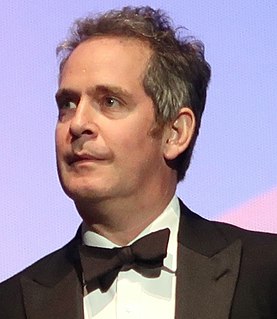Top 55 Quotes & Sayings by Tom Hollander
Explore popular quotes and sayings by an English actor Tom Hollander.
Last updated on December 25, 2024.
Certainly in the theatre, you never have to get up before 10 A.M., and when filming, though you do have to get up terribly early, you usually get to lie down a lot during the working day. I thought my semi-bedridden existence was a choice. But now I think that actually, in fact, I must always have been depressed.
Anybody who was a politician at one stage - when they were at the "I'd like to be a train driver" stage of their lives - must also have thought: "I'd like to make the world a better place if possible." So, I think that's why most politicians go into it. They don't want to take over the world and most go into it for good reasons and then, presumably, are beset by endless things stopping them from following their natural inclination to do the right thing.




















